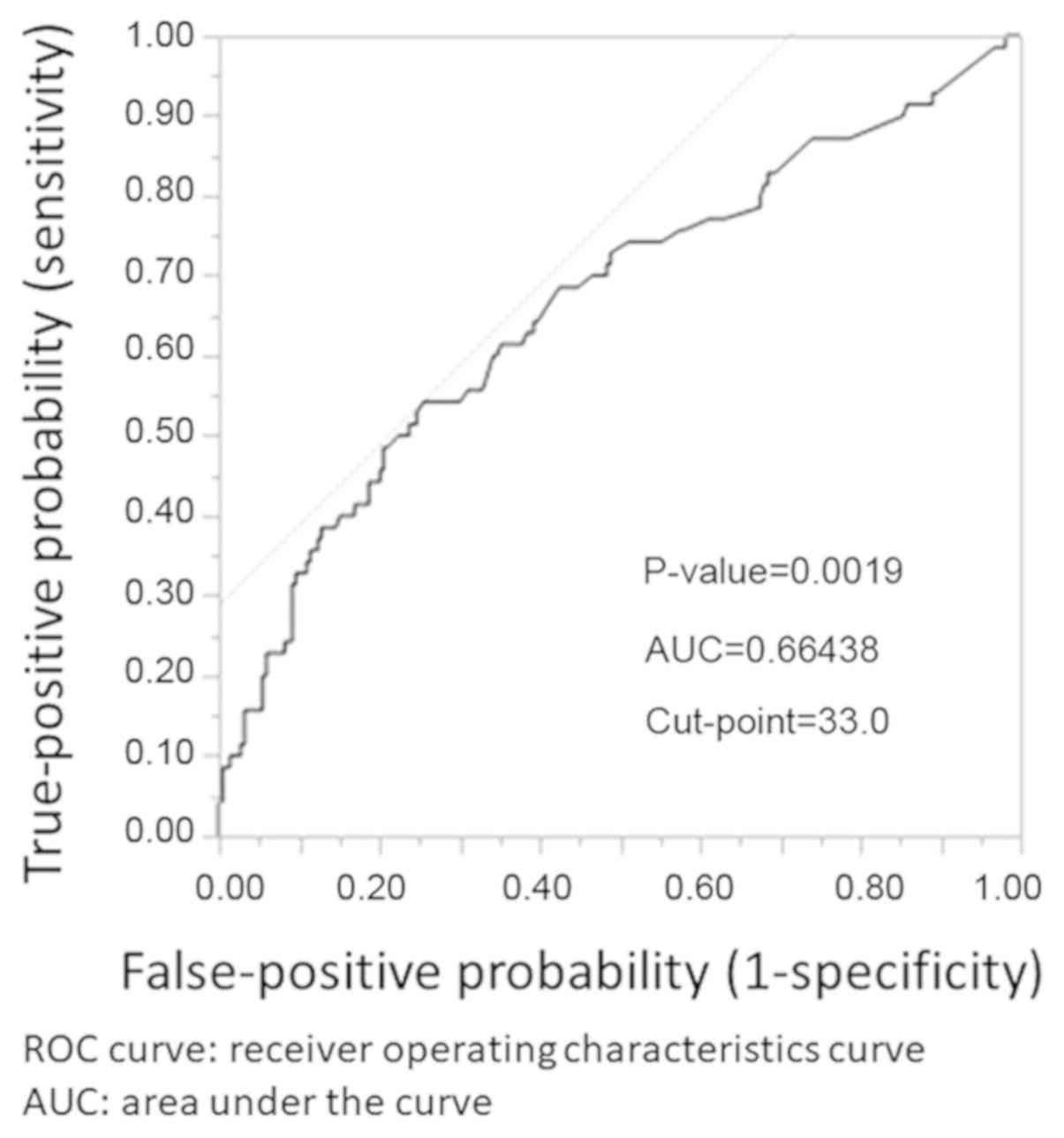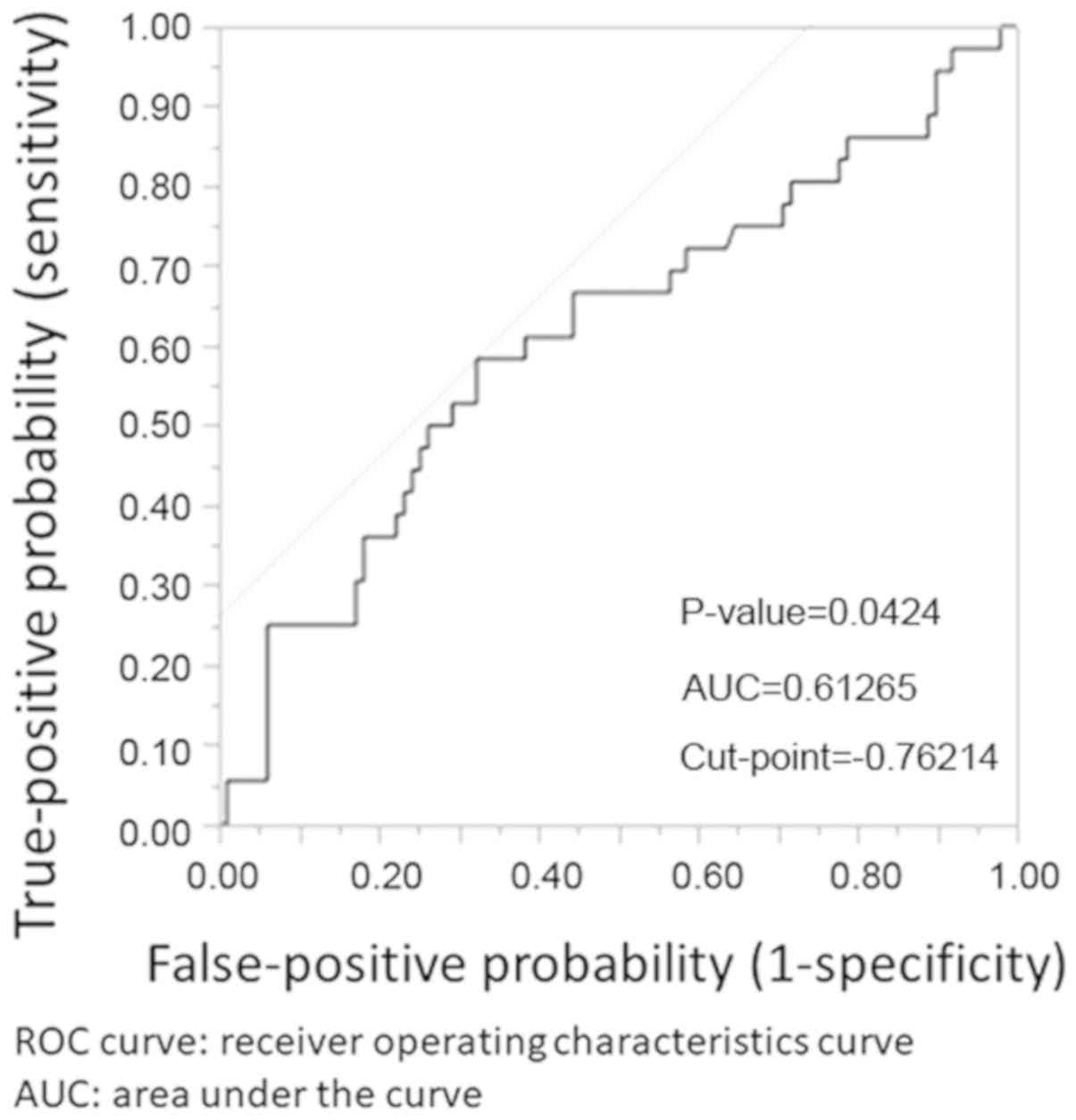Spandidos Publications style
Koizumi S, Yamashita S, Matsumura S, Takeda K, Minagawa T, Kobayashi S, Hibi T, Shinoda M, Endo I, Tanabe M, Tanabe M, et al: Significance of a preoperative tumor marker gradient for predicting microvascular invasion in cases of hepatocellular carcinoma. Mol Clin Oncol 12: 290-294, 2020.
APA
Koizumi, S., Yamashita, S., Matsumura, S., Takeda, K., Minagawa, T., Kobayashi, S. ... Otsubo, T. (2020). Significance of a preoperative tumor marker gradient for predicting microvascular invasion in cases of hepatocellular carcinoma. Molecular and Clinical Oncology, 12, 290-294. https://doi.org/10.3892/mco.2020.1975
MLA
Koizumi, S., Yamashita, S., Matsumura, S., Takeda, K., Minagawa, T., Kobayashi, S., Hibi, T., Shinoda, M., Endo, I., Tanabe, M., Yamamoto, M., Otsubo, T."Significance of a preoperative tumor marker gradient for predicting microvascular invasion in cases of hepatocellular carcinoma". Molecular and Clinical Oncology 12.3 (2020): 290-294.
Chicago
Koizumi, S., Yamashita, S., Matsumura, S., Takeda, K., Minagawa, T., Kobayashi, S., Hibi, T., Shinoda, M., Endo, I., Tanabe, M., Yamamoto, M., Otsubo, T."Significance of a preoperative tumor marker gradient for predicting microvascular invasion in cases of hepatocellular carcinoma". Molecular and Clinical Oncology 12, no. 3 (2020): 290-294. https://doi.org/10.3892/mco.2020.1975
















